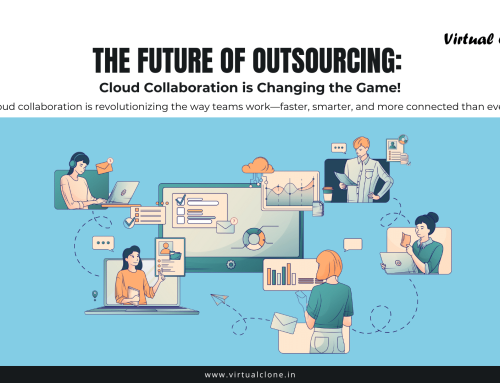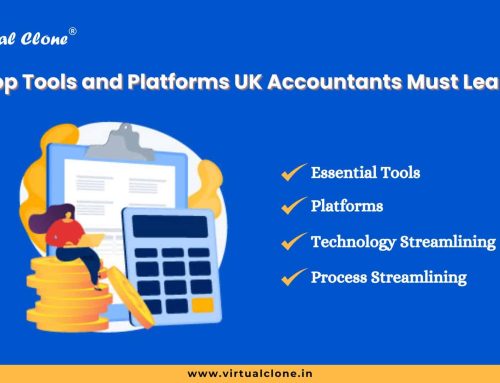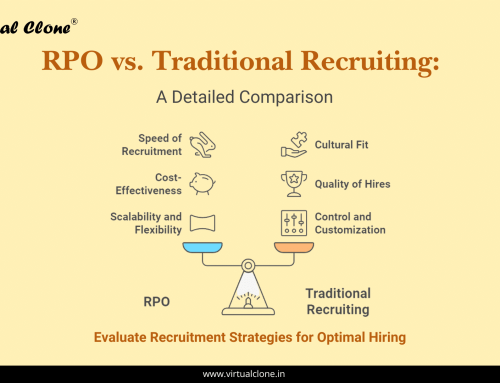Recruitment is the backbone of a thriving business. However, managing it in-house can be a daunting task, especially when faced with fluctuating hiring needs, skill shortages, or time constraints. This is where Recruitment Process Outsourcing (RPO) steps in as a game-changing solution. Whether you’re looking to outsource the entire process or optimize specific aspects, RPO offers unparalleled efficiency and results.
Let’s dive into the world of RPO and how it can transform your hiring strategy.
What Is RPO?
Recruitment Process Outsourcing involves delegating part or all of your recruitment activities to an external provider. These providers, known as RPO partners, act as an extension of your HR team. They handle everything from sourcing candidates to onboarding, bringing expertise, advanced tools, and scalability to your hiring process.
Key Benefits of RPO
1. Cost-Effective Hiring
Traditional hiring methods can be expensive, especially when you factor in job advertisements, recruiter salaries, and lost productivity due to delays. RPO providers optimize these costs, offering predictable pricing models and efficient hiring.
2. Access to a Larger Talent Pool
RPO providers leverage extensive networks, industry knowledge, and cutting-edge tools to tap into a broader talent pool. They can source both active job seekers and passive candidates, ensuring you find the right fit for every role.
3. Streamlined Recruitment Process
From candidate sourcing to onboarding, an RPO partner standardizes and automates workflows. This reduces bottlenecks, minimizes errors, and ensures a smooth hiring process.
4. Improved Employer Branding
A strong employer brand attracts top talent. RPO providers enhance your reputation as an employer by delivering a positive candidate experience and aligning recruitment efforts with your company’s values.
5. Scalability and Flexibility
Whether your business is hiring in bulk or filling niche roles, RPO offers scalable solutions. It adapts to your changing needs, making it an ideal choice for growing companies.
6. Compliance and Risk Mitigation
Navigating complex employment laws can be challenging. RPO providers stay updated on regulations, ensuring compliance and reducing the risk of legal issues.
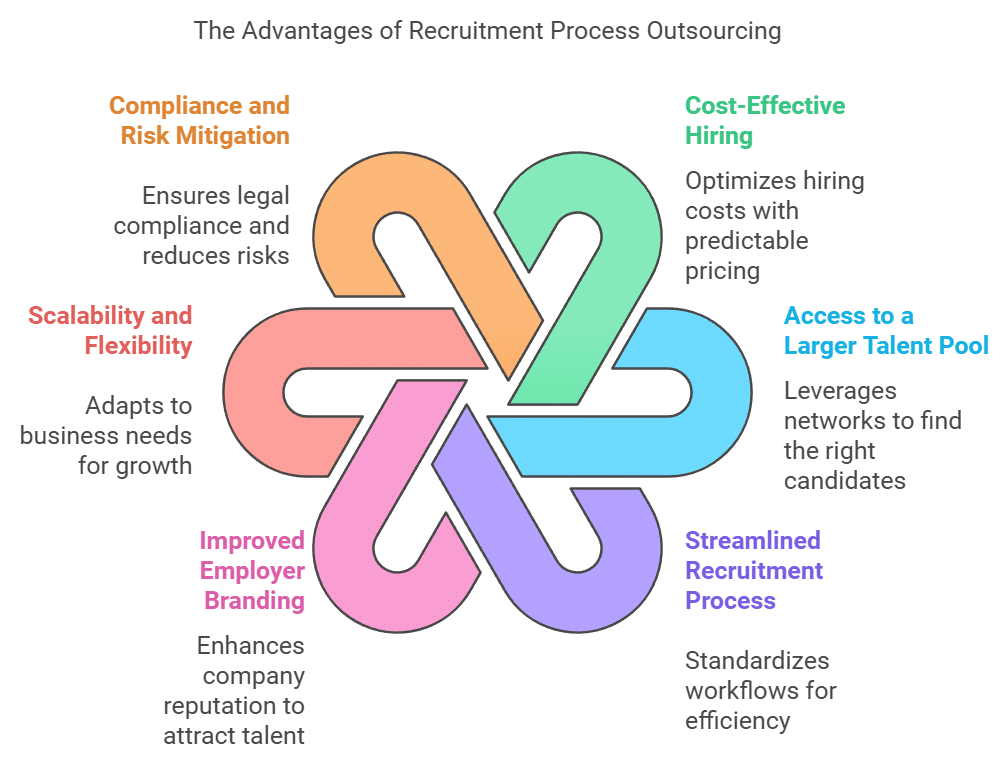
How RPO Works
1. Discovery Phase:
The RPO provider analyzes your current recruitment process, identifies challenges, and sets objectives.
2. Custom Strategy Development:
A tailored plan is designed, outlining the scope of services, hiring timelines, and performance metrics.
3. Implementation:
The RPO team takes over designated tasks, such as job postings, candidate screening, and interview coordination.
4. Ongoing Optimization:
Continuous monitoring and feedback ensure that the process evolves to meet your needs and improve efficiency.
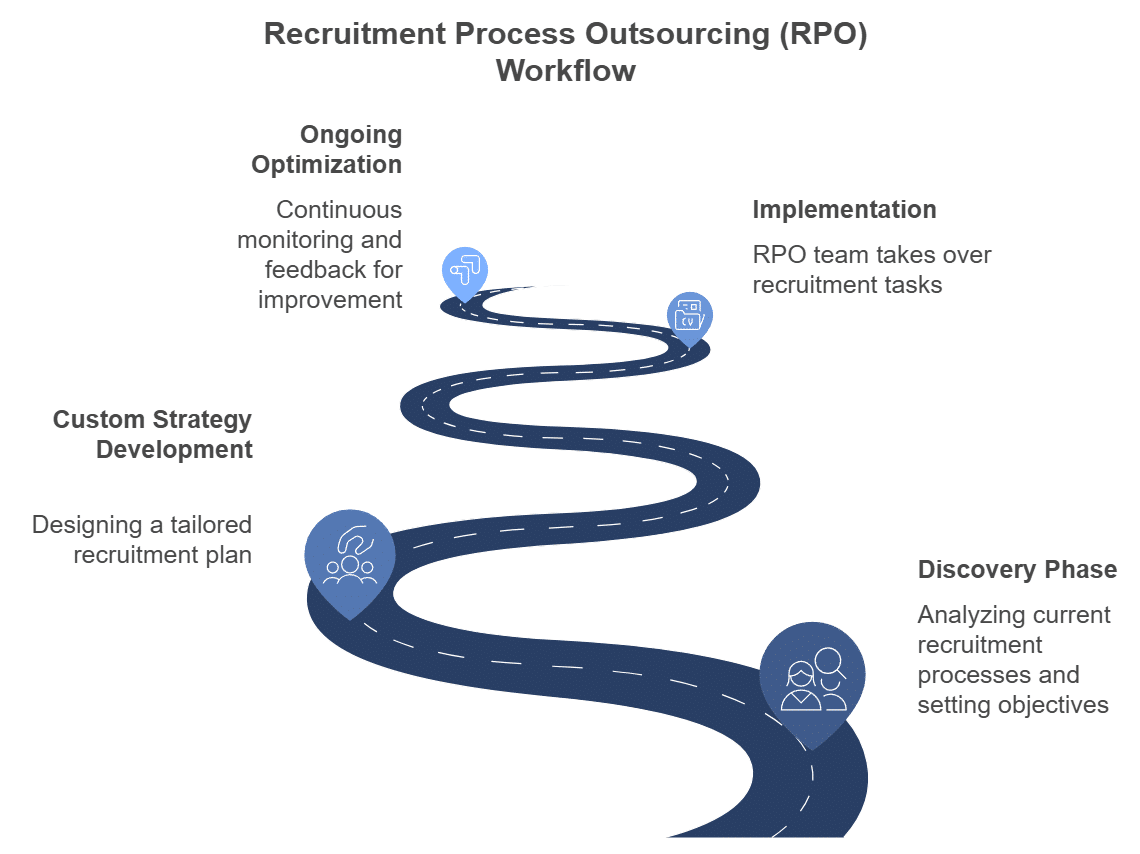
Is RPO Right for Your Business?
If your organization faces challenges like high turnover, rapid expansion, or skill shortages, RPO could be the perfect solution. It’s particularly beneficial for businesses seeking to:
- Save time and costs on recruitment.
- Hire specialized or high-volume roles quickly.
- Enhance candidate experience and employer branding.
- Ensure compliance with employment regulations.
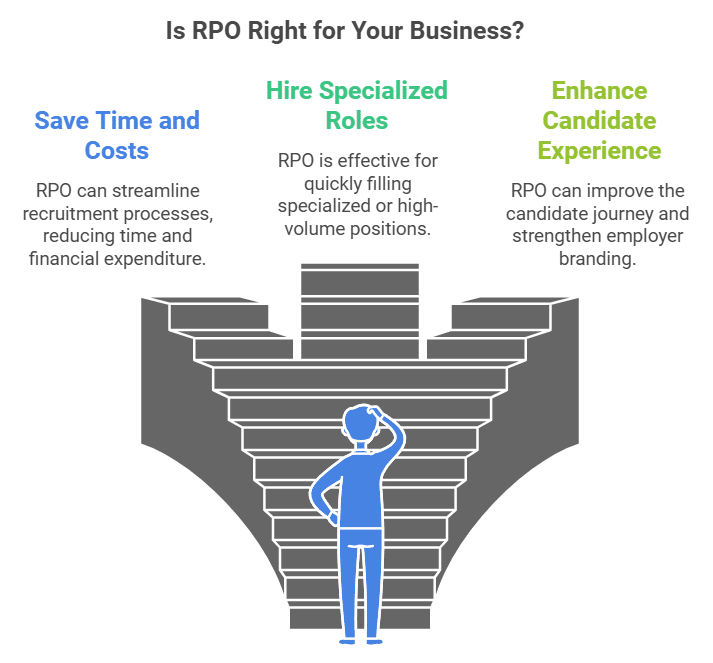
Recruitment Optimization
Recruitment optimization, on the other hand, involves improving and refining a company’s existing recruitment processes to enhance efficiency and effectiveness. This can include leveraging technology, data analytics, and best practices to attract and retain top talent.
Benefits of Recruitment Optimization
- Improved Candidate Experience: By optimizing the recruitment process, organizations can create a more positive experience for candidates, leading to higher acceptance rates and better employer branding.
- Data-Driven Decisions: Utilizing analytics allows companies to make informed decisions about their recruitment strategies, leading to better outcomes.
- Enhanced Quality of Hire: By refining the selection process, organizations can improve the quality of their hires, reducing turnover and increasing employee satisfaction.
- Cost Savings: Streamlining processes can lead to reduced time-to-hire and lower recruitment costs.
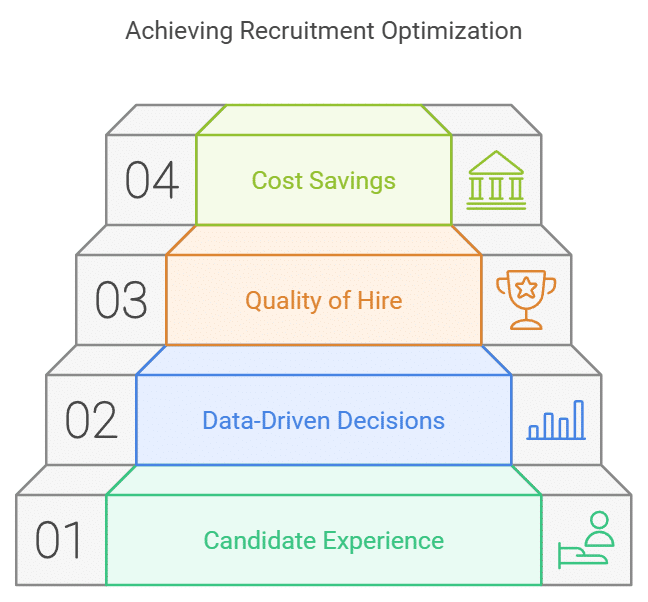
When to Choose RPO vs. Optimization
- Choose RPO when your organization lacks the resources, expertise, or technology to manage recruitment effectively. RPO is ideal for companies looking to outsource their entire recruitment function or when facing significant hiring demands.
- Choose Recruitment Optimization when your organization has an existing recruitment process but seeks to enhance its effectiveness. This approach is suitable for companies that want to leverage their current resources while improving their hiring outcomes.
Conclusion Both Recruitment Process Outsourcing and recruitment optimization offer valuable strategies for enhancing hiring processes. The choice between the two depends on an organization’s specific needs, resources, and goals. By understanding the differences and benefits of each approach, companies can make informed decisions that lead to more efficient and effective recruitment practices.
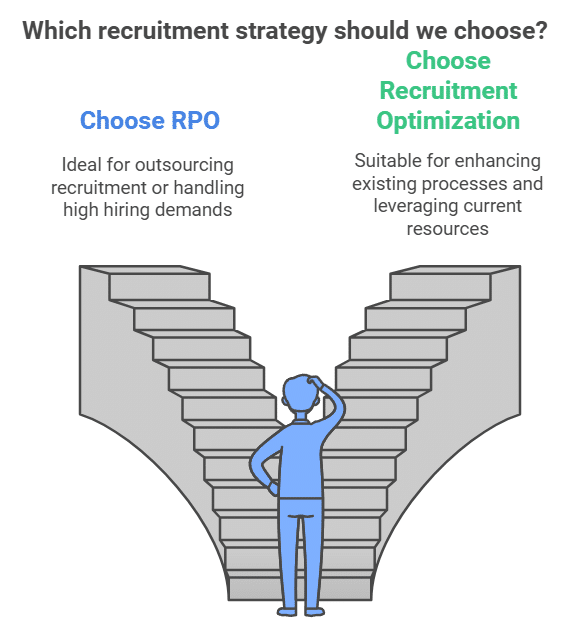
Optimize Recruitment with Virtual Clone
At Virtual Clone, we specialize in providing end-to-end RPO services that help businesses recruit smarter and faster. Our expert team, advanced tools, and scalable solutions ensure you attract and retain the best talent in the market.
Ready to transform your recruitment strategy? Contact Virtual Clone today and let us handle the hiring while you focus on growing your business!


